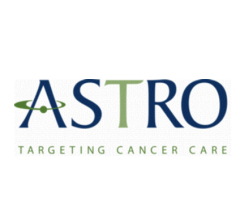
October 19, 2015 — For some patients with human papilloma virus (HPV)-related cancer of the tonsils and tongue, reduced intensity radiation therapy (RT) and chemotherapy may be as effective as standard-dose radiation and chemotherapy, and result in less acute side effects. This conclusion came from research presented at the American Society for Radiation Oncology’s (ASTRO’s) 57th annual meeting, Oct. 18-21 in San Antonio.
The incidence of cancer at the base of the tongue and tonsil is rapidly increasing and thought to be caused by HPV infection. The standard treatment for patients with HPV-related squamous cell carcinoma of the oropharynx is a seven-week course of 70 Gy of RT, in conjunction with a high-dose (100 mg/m2) of the chemotherapy drug Cisplatin for three cycles. Although this standard chemoradiotherapy protocol results in excellent cancer control and survival among patients, it produces substantial adverse side effects, such as chronic, acute difficulties in talking or swallowing, which may require a feeding tube; dry mouth; painful inflammation of the mucous membranes and/or digestive tract; tooth decay and necrosis of the jawbone.
This prospective, multi-institutional, phase II study assessed the use of reduced intensity chemoradiotherapy among 43 patients with favorable risk HPV-associated oropharyngeal squamous cell carcinoma who had a minimal history of smoking. Radiation therapy was reduced by 16 percent, to a six-week course of 60 Gy, and the chemotherapy dose was reduced by 60 percent overall, with low doses (30 mg/m2) of Cisplatin delivered concurrently for six weeks.
After patients completed chemoradiotherapy, the tumor site was biopsied and any lymph node regions that were originally cancer-positive were removed in order to determine the treatment’s efficacy. Of the 43 patients studied, 37 of them (86 percent) had no residual invasive tumor and no residual lymph node metastasis. The cancer remaining in the other six patients was microscopic. Follow-up was conducted for six to 36 months, with an average follow-up of 20.7 months, during which all patients were alive and had no evidence of cancer recurrence.
Symptoms and quality of life were evaluated using two patient-reported questionnaires – the National Cancer Institute’s Patient-Reported Outcomes version of the Common Terminology Criteria for Adverse Events (PRO-CTCAE) and European Organization for Research and Treatment of Cancer Quality of Life Questionnaire (EORTC QLQ). Modified barium swallow studies assessed swallowing outcomes. Early findings suggest that reduced intensity chemoradiotherapy resulted in less acute toxicity and a decrease in side effects of mucositis (inflammation and of the mucous membranes lining the digestive tract), nausea, vomiting, swallowing difficulty and dryness of the mouth. Standard chemoradiotherapy regimens have reported feeding tube rates of up to 80 percent, approximately 10 percent of which were permanent. On the contrary, only 39 percent of patients in this study needed a feeding tube, none of which were permanent. Patients also reported that their swallowing function returned to almost normal, compared to baseline, pretreatment patient reports, and this was verified by the objective modified barium swallow studies, whereby patients’ swallowing difficulty is assessed using a fluoroscopic X-ray while they swallow various consistencies of food and liquids.
“Our study provides strong preliminary evidence that reduced intensity chemoradiotherapy may be as effective as standard dose chemoradiotherapy,” said lead study author Bhishamjit Chera, M.D., associate professor of radiation oncology at University of North Carolina School of Medicine. “With further study, this regiment may become the new standard of care for carefully selected patients with HPV-associated squamous cell carcinoma of the oropharynx. The results so far are certainly encouraging, and with longer follow-ups, we hope to confirm less long-term side effects, as well.”
Additional data is needed, so at this time reduced intensity treatment should only be given if patients are enrolled in carefully controlled clinical trials, concluded Chera. He and his team are currently conducting a follow-up study among certain patients, in which biopsies and lymph node removal is only done if a 12-week post chemoradiotherapy PET scan is suspicious for persistent cancer is currently being conducted.
For more information: www.astro.org


 February 04, 2026
February 04, 2026 









